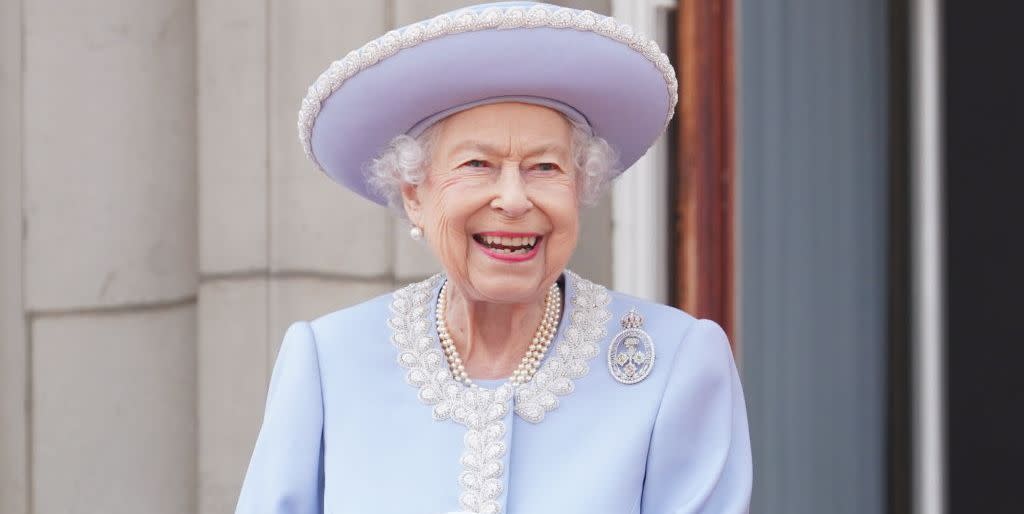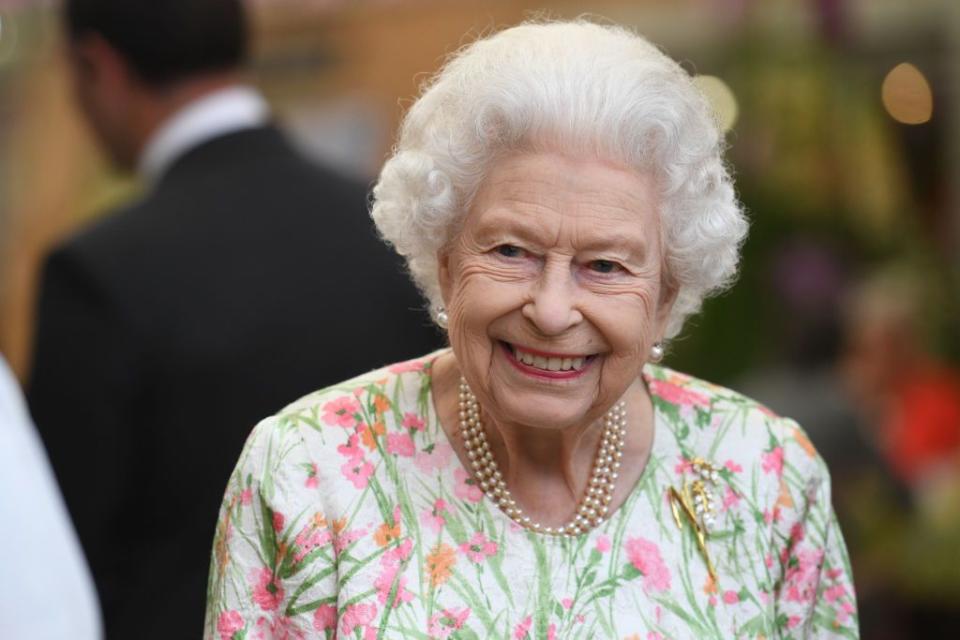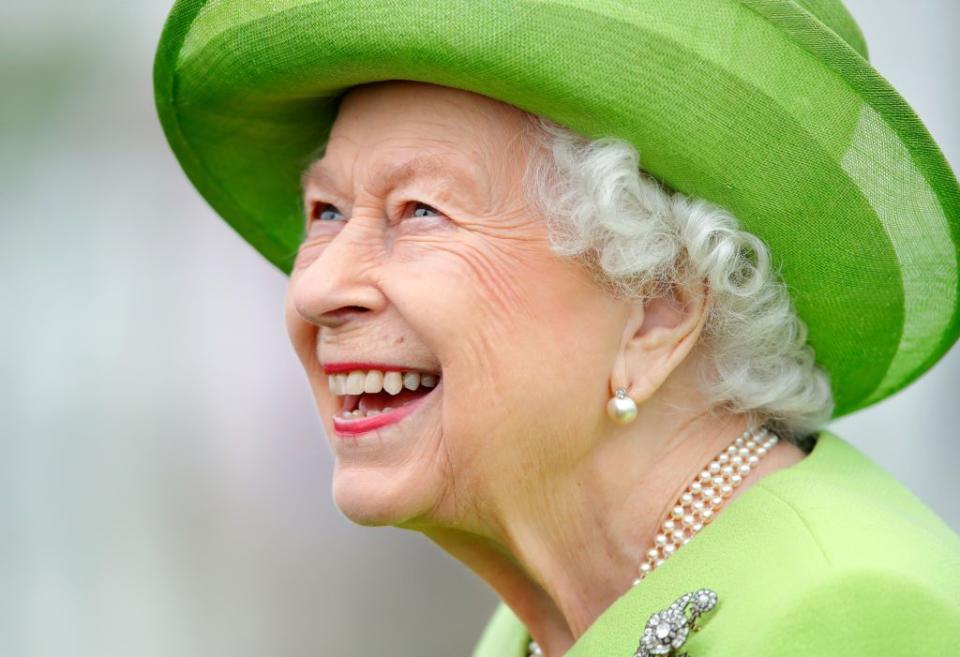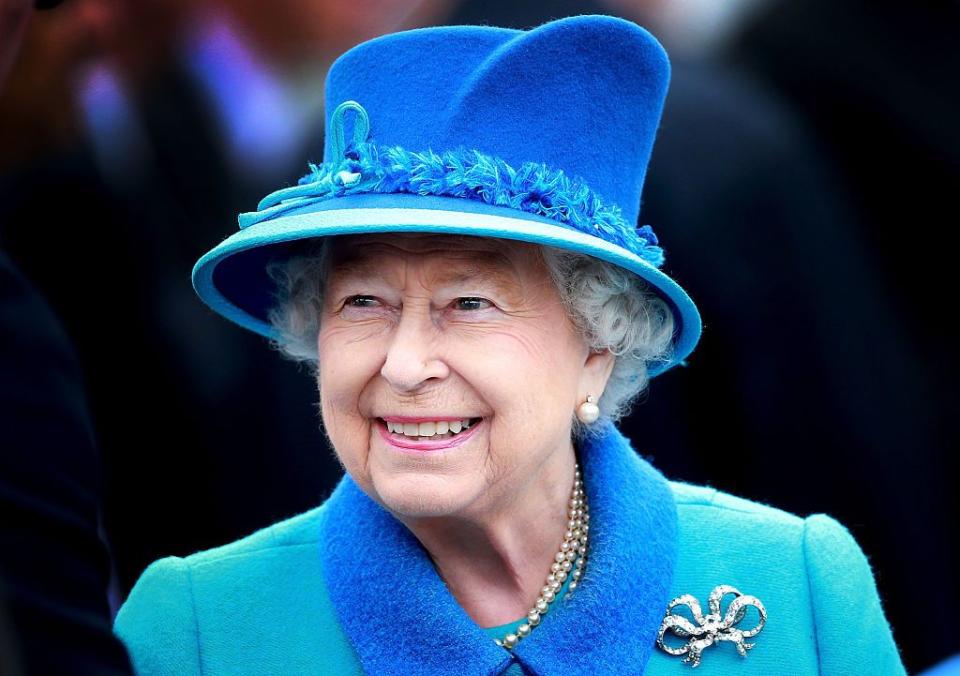How to talk to your children about The Queen's death and how to best support them

On Thursday, 8 September, Buckingham Palace announced that Her Majesty, Queen Elizabeth II, had "died peacefully at Balmoral."
The nation has now entered a period of mourning, with national conversation, be it on the news or chatting with friends and family, being dominated with talk of the Queen.
The event of a death is overwhelming for most people. And, while we may all be busy coming to terms with our own grief, it's important not to overlook the children in our life. From infants to teenagers, most children will be aware of the Queen's death; so it's important to talk about it. Moreover, children may be feeling worried, or may have found the Queen's death a trigger for another bereavement they have faced or they may just be curious.
If you're wondering where to begin with this conversation, we spoke to Dr Jane Gilmour, Clinical Psychologist at Great Ormond Street Hospital and co-author of How to Have Incredible Conversations With Your Child, for expert advice on how to go about this...
Use the right language
It can seem intimidating to speak to children about death, especially if they are young. However, not using words like "death" or "dying" can lead to misconceptions and misunderstandings.
"As a parent, we want to teach our kids that it's okay to say 'death,'" says Jane. "When speaking to your children about the death of the Queen, go into the conversation with honesty, straightforward language and good intentions. Be kind and gentle, but use accurate vocabulary, particularly for young children whose language is developing."
Jane advises against using terms like "passed on" or "lost" - as this can make children more confused. "By using the word 'death,' you are avoiding confusion and helping children understand what death means. Nursery and primary school age children are still learning that death is permanent, so you must make sure they understand this."

Be proactive
Do not assume that your children are too young to understand that something has happened. "It would be extraordinary if children haven’t picked up on something changing," says Jane. "We know that even very young children pick up a change in emotional temperature. If you don’t talk to them about what's going on, they may fill in the gaps with information that's untrue or start feeling frightened."
For school age children, Jane suggests talking together and also watching the news as a family. "Children of this age will understand what is happening, but they will also be influenced by what they hear from others. For example, they may hear a newsreader or another parent at the school gate referring to the Queen's death as a 'sombre occasion' or 'the end of an era.' These phrases are ones we can understand as adults, in context, but a child may not fully comprehend this. So, by watching the news together, you can talk to your kids about what they’ve heard, and help translate anything they may not understand."

Being proactive with teenagers requires a different approach. "When a teenager goes through puberty, their brain state changes," explains Jane. "As part of teenage brain development, it's important to understand that teenagers feel emotions more intensely than other age groups, including younger children and adults."
As a result of this, you may find that your teenager is more affected by the Queen's death than you thought they would be. However, Jane says that this is a totally normal response. "If your teenager feels significantly impacted, it could be The Queen's death has triggered a connection between this and something else going on in their life," she explains. "It could also be because it has triggered a worry about another big change occurring in the world, as we've experienced so much change over the past few years.
"If your teenager is emotional, take the chance to connect with them. Ask them what they think is going on and give them a chance to think it through to help them figure out where the connections are happening and what is making them feel like this. Asking questions is the key, here."

Revisit the conversation
After you've first spoken with your children about The Queen's death, make sure you revisit the conversation a few days later to check in on your kids. They may have more thoughts they want to add or questions they want to ask you.
This is important for children of all ages. "By revisiting the conversation with young children, you can address any links they may have made as they try to comprehend what has happened," says Jane. "For example, if you say to your child: 'The Queen died - she was old and had a good life,' they may make the connection between old age and dying. So, it's important to come back to this conversation with young children to reassure them, make sure they're not worried, and check they haven't been making links where there is no real connection."

Another key thing about checking in with your kids on how they feel is that you can see whether The Queen's death has triggered a response in them about something else. For example, seeing the subject of death everywhere may make them think of a death they have experienced previously in life, whether that be a grandparent, relative or pet. In this situation, Jane advises to give your child space to talk. "As parents, we just want to fix things and problem solve," she says. "But in this case, just allow your child to speak. If you say very little, it allows them to sort through what they’re thinking. Be close, hold their hand, and listen.
"Once they’ve shared their thoughts, repeat back what you’ve heard, which will validate their feelings. For the vast majority of children, this is all the reassurance they need, and will help build a bond between you and them."

Address your emotions
"Parents shouldn’t feel concerned about saying they feel sad," says Jane. "It’s good for parents to describe emotions to normalise them. It's okay to say to your children that The Queen's death has left you feeling anxious, worried or sad.
"By sharing this with your children, you create a sense of unity and establish yourself as a safe space to talk about emotions."
If your child is struggling with feelings or grief or following a bereavement, the NHS has a list of support services that are available.
You Might Also Like


